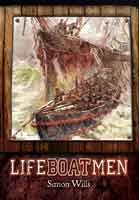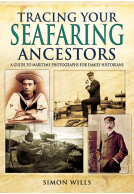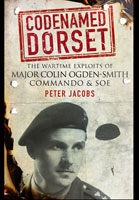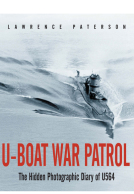Shipwrecks in 100 Objects (Hardback)
Stories of Survival, Tragedy, Innovation and Courage

Series: In 100 Objects
Pages: 224
Illustrations: B&W illustrations & colour plate section
ISBN: 9781526792211
Published: 16th September 2022
Youtube!
Bruships 87: Books Found on My Travels, New Books & Christmas Recomendations - YouTube
Dr Alexander Clarke Does Naval History Live - Skip to 24:05
(click here for international delivery rates)
Need a currency converter? Check XE.com for live rates
| Other formats available - Buy the Hardback and get the eBook for £1.99! | Price |
|---|---|
| Shipwrecks in 100 Objects ePub (119.0 MB) Add to Basket | £6.99 |
The history of shipwrecks involves many shocking episodes: from men who saw shipmates eaten by sharks, to castaways who ate each other. Learn about the cowardly captain who deserted his passengers on a sinking ship, the obstinate ship-designer who took 480 men to their deaths, and the first mate who wrecked his own ship for insurance money.
Historian and genealogist Dr Simon Wills is maritime adviser to BBC’s Who Do You Think You Are? programme. In this fascinating book he uses objects associated with real incidents as touchstones for every tale. Our ancestors believed that sea monsters destroyed ships, but better-established causes include storms, war, pirates, human incompetence, fire and ice.
The pages of this book are packed full of tales of dramatic rescues and miraculous survivals, and as well as the stories of the innovations that have improved safety at sea. Meet the man shipwrecked three times within an hour, a coastguard still diving overboard to save lives at 79, and the lifeboat inventor who endured someone else taking credit for his work. Ships can have character too: refusing to sink despite overwhelming odds, or even returning to haunt us as ghost ships.
The dangerous life afloat stimulated pioneers to create the lifeboat service, offshore lighthouses, and lifejackets. Vessels lost at sea also inspired rewards for bravery, and artists and writers such as J.M.W. Turner, William Wordsworth, and Yann Martel the author of Life of Pi.
Featuring famous wrecks such as Mary Rose and Titanic, this book introduces other less well-known but equally remarkable events from our nautical heritage, some of which seem almost too extraordinary to be true.
"All in all, a very enjoyable book to read, not weighed down with too much information on each subject but enough to pique the reader’s interest and keep them reading."
Nautical Research Journal Volume 68 (2023)
"Overall, this is a good book, well-illustrated, methodical in its presentation, and of good quality overall - well worth the price."
South West Soundings - The Newsletter of the South West Maritime History Society - June 2023, No 124
Dr Simon Wills brilliantly tells the stories associated with 100 objects from shipwrecks spanning half a millennium.
The Nautilus Telegraph - May/June 2023
Read the review here
5 out of 5
Army Rumour Service (ARRSE)
Highly recommended if you are interested in anything nautical especially shipwrecks of any kind.
Read the Full Review Here
As featured in
Family Tree, Feb 23
In this fascinating book he uses objects associated with real incidents as touchstones for every tale. Our ancestors believed that sea monsters destroyed ships, but better-established causes include storms, war, pirates, human incompetence, fire and ice.
The History Fella
This book covers a plethora of shipwrecks or problems at sea, ranging from wrecks through the weather, ‘monsters’, pirates and collisions with ships and the rocks. The objects are also wide-ranging and obscure too, such as paintings, medals, stained glass windows, tickets, photos and much more. I fully enjoyed this book and in quite a way it gets you hooked on the sea-faring life, if you are into life on the waves, you’ll love this book.
Read the Full Review Here
About Dr Simon Wills
Dr SIMON WILLS is a genealogist, historian and journalist and a regular contributor to Family Tree, the BBC’s Who Do You Think You Are? and other magazines. He writes mainly about maritime history and genealogy, but he also has a special interest in health and disease in the past. He has given presentations and interviews all around the UK for history, genealogy and literary festivals, and for organisations such as the BBC, National Trust and National Archives. His most recent publications include a guide to maritime photographs, Tracing Your Seafaring Ancestors, and a popular account of our forebears' illnesses, How Our Ancestors Died.


























